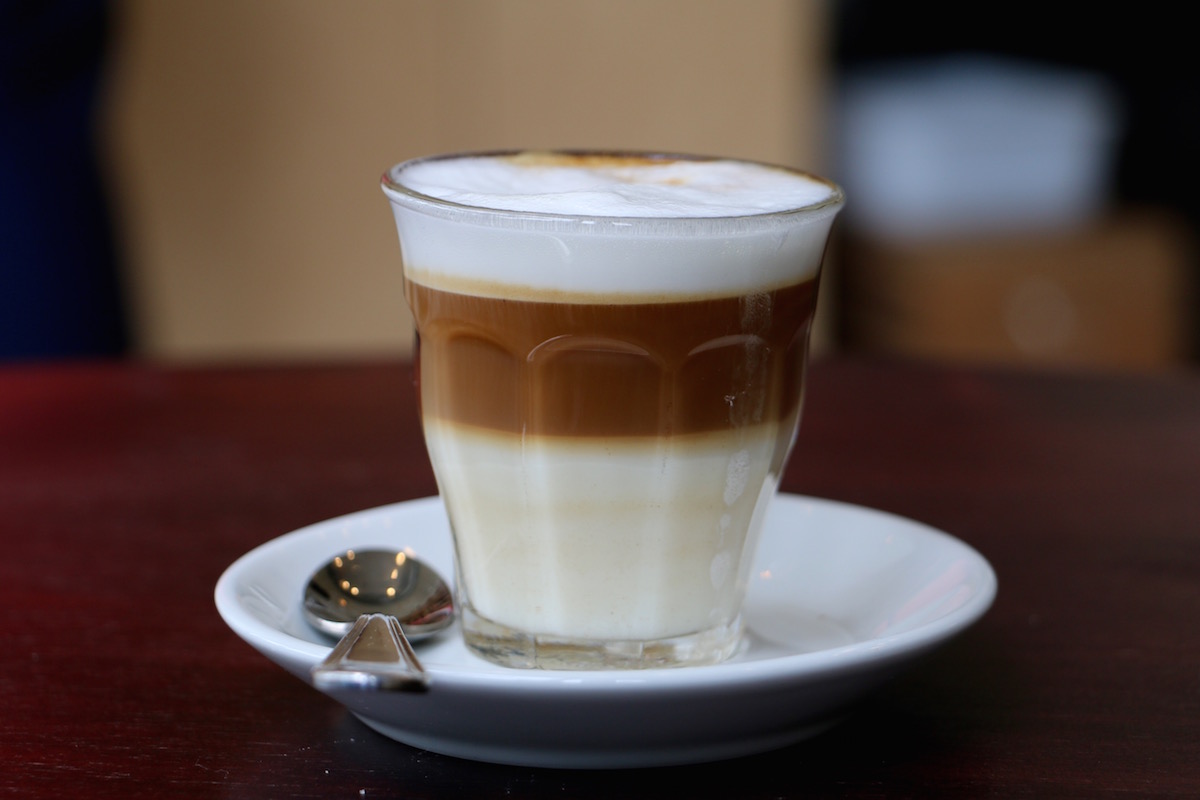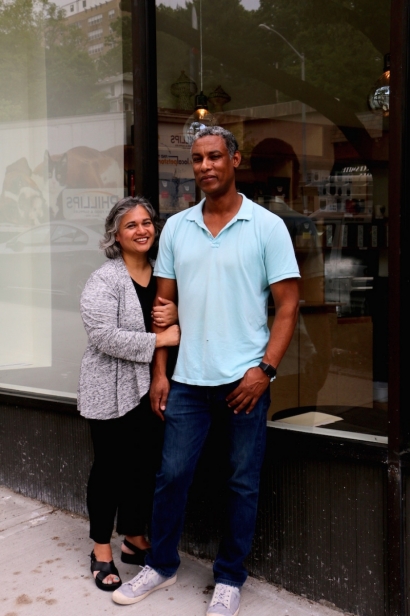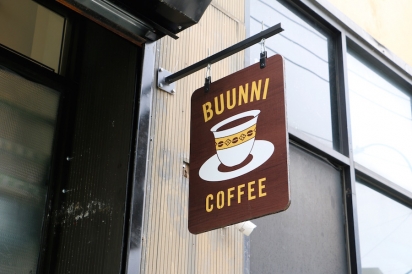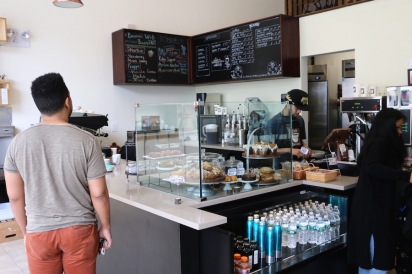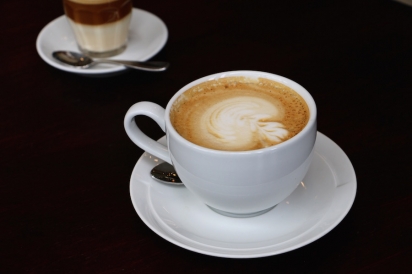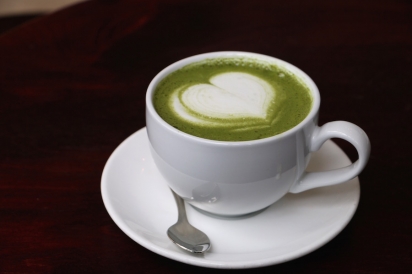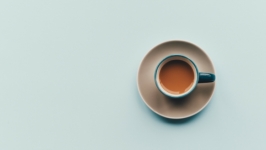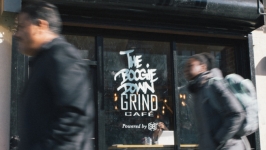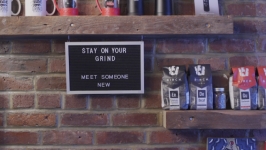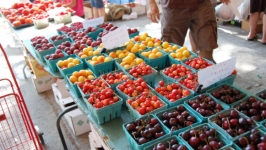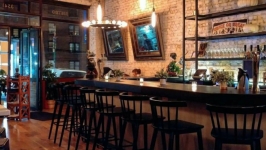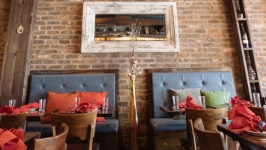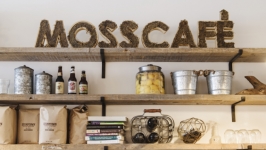Buunni Coffee Shop Offers Coffee From Where It Originated
When Buunni Coffee Shop opened its Riverdale location in early May 2018, the Bronx neighborhood gained a welcoming space to meet with friends and neighbors. The narrow, lofted space is open and airy with communal seating upstairs and a few café tables downstairs. There’s a rustic vibe from the café’s coffee counter, shelving, and stairway—all different shades of warm brown tones. But beyond a beckoning space to gather, residents now have access to an authentic cup of Ethiopian coffee that’s ethically sourced and freshly roasted—a treat for all the senses.
This is the second outpost of Buunni Café by husband-and-wife team Elias Gurmu and Sarina Prabasi. The first opened in Washington Heights in 2012, but the beginning of this caffeine-fueled endeavor started in 1997 when Prabasi’s nonprofit work first brought her to Ethiopia.
“I was raised in Nepal, a tea-drinking culture,” she explains. “But when I came to Ethiopia I fell in love with the coffee culture. The coffee, grown in backyards, would be roasted right in front of me. It’s a ritual that brings people together, and coffee is a core part of the community.”
On a return trip to Ethiopia in 2006, Prabasi met Gurmu—not surprisingly, over a cup of coffee—and they continued to find reasons to meet at coffee shops throughout Addis Ababa. Gurmu was born and raised in the Ethiopian capital city and says, “Ethiopia is the birthplace of coffee, and everyone [there] knows how to prepare coffee—it’s in our blood.” He was a barista when he finished high school and by the time he met Prabasi had started his own businesses. When the couple decided to move to New York City in 2011, they knew they had to bring their love of the region’s specialty back with them.
Buunni, a play on the Ethiopian words for “coffee” and “brown,” started in the couple’s kitchen in Washington Heights. They imported green beans from small Ethiopian family farms, and Gurmu would roast them on a mitad, a large flat pan used for roasting coffee he brought to the U.S. They would sell their coffee and beans at neighborhood events, and the overwhelmingly positive reaction prompted the pair to set up their first café in 2012.
The cost of a cup of coffee at Buunni is admittedly a bit higher than at large chain coffee shops found in the neighborhood. Prabasi describes their coffee as “specialty products” and estimates that 20 different pairs of hands go into making each cup. The labor-intensive, precise process includes handpicked beans, highly monitored drying and processing, careful shipping, professional roasting and trained baristas.
Two cafés later (with another opening in the George Washington Bridge Terminal), not much has changed in the unwavering quality the couple expects for beans that bear the Buunni name. The beans are still harvested from small family farms and co-ops in Ethiopia. Roasting still occurs locally—just not in their apartment; they’ve found a roaster in New Jersey who roasts single-origins and blends according to their specifications. And freshness is key. Coffee beans used in the café or sold online have been roasted within a week of purchase.
The couple’s desire to serve the neighborhood also remains intact. “There were social components to Buunni that from the very beginning we knew we wanted,” Prabasi says. Sustainable practices across the lifespan of the bean, from the farmers all the way to the recyclable cups used at the café, are important, even if it wasn’t the least expensive route for a small business to take. The shop features baked goods from local purveyors and encourages the use of their space as a place where the community can come together—anything from knitting circles to variety shows to offering their walls for local artists.
Serving the community also means slights shifts from the Ethiopian coffee culture to American expectations. When pressed to talk about the differences, Gurmu talks about the sizes of coffee that are served in the U.S. “In Ethiopia, four ounces is the maximum—coffee is short and strong.” But the café serves an array of expertly made drinks that would please any coffee lover. For an authentic experience, the couple suggests you drop in for a bunna, a long shot of espresso, or an Ethiopian macchiato.
“The macchiato is our drink,” coos Prabasi. “It’s the cup of coffee Elias and I fell in love over.”
Visit Buunni Coffee 3702 Riverdale Ave, Bronx, NY


